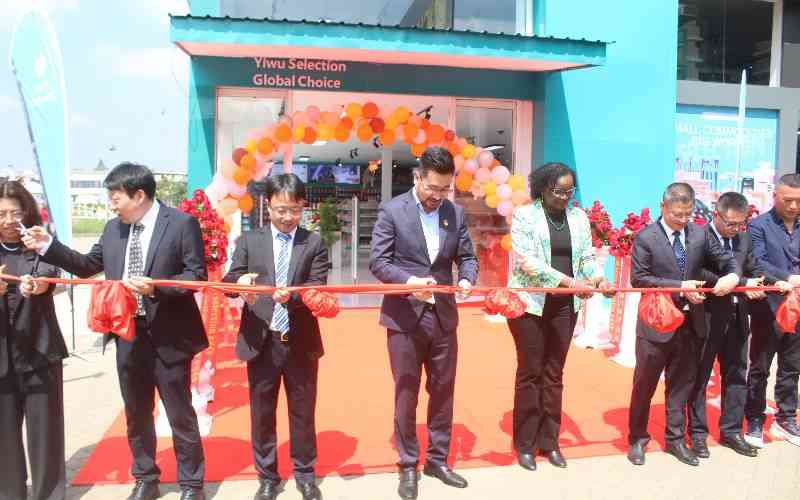- Details
- East Africa
- 950
Kenya has invited China to seize investment opportunities in the country’s special economic zones as a strategic entry point into Africa’s vast consumer market. On Friday, the Kenya Investment Authority (KenInvest) showcased a range of investment opportunities for Chinese businesses, stressing that Kenya offers a gateway to millions of African consumers.
Speaking at the official opening of Yiwu Selection Kenya — an exclusive women’s merchandise store at the Waterfront Mall in Karen — KenInvest’s General Manager, Legal Services, Olivia Rachier, said the East African region alone has a market size of 400 million people.
“Kenya remains one of Africa's most attractive destinations for investment,” Rachier said after officiating the launch of the new China Square affiliate store. She pitched Kenya as a stable democracy with a resilient economy, supported by a young and skilled workforce and a sophisticated financial system.
“Strategically located as the gateway to East Africa, Kenya offers direct access to a regional market of more than 400 million people and, through the African Continental Free Trade Area, to 1.4 billion customers across Africa,” she said.
Rachier told the Chinese delegation accompanying the proprietors of China Square that Kenya has prioritized reforms to ease investment by streamlining business registration, strengthening investor protection, and providing incentives in its economic zones.
“These measures ensure investors enjoy a predictable and favourable environment,” she said, adding that Chinese investors have immense opportunities not only in manufacturing but also in industrialization, exports, and innovation.
She pointed to sectors such as infrastructure, energy, agriculture, agro-processing, fintech, tourism, and real estate as areas ripe for Chinese partnerships.
China Square Managing Director, Lei Cheng, described the launch of Yiwu Selection Kenya as an “exciting step” in the company’s global expansion mission.
“This launch aims to bring more premium products to the Kenyan market while creating opportunities for local investors and employment for young people,” Cheng said.
The store, he added, is stocked with cosmetics, skincare products, beachwear, kitchenware, and other lifestyle essentials targeting women aged 25 to 55.
“This is our first global select store, and we chose Kenya because it is a multicultural country with unique opportunities. Women represent the largest consumer market anywhere, and we want to provide them with affordable, quality products,” he said.
Cheng noted that Chinese investors are looking forward to cooperating with Kenyan entrepreneurs through franchised store models and joint ventures. By Benard Orwongo, The Standard






